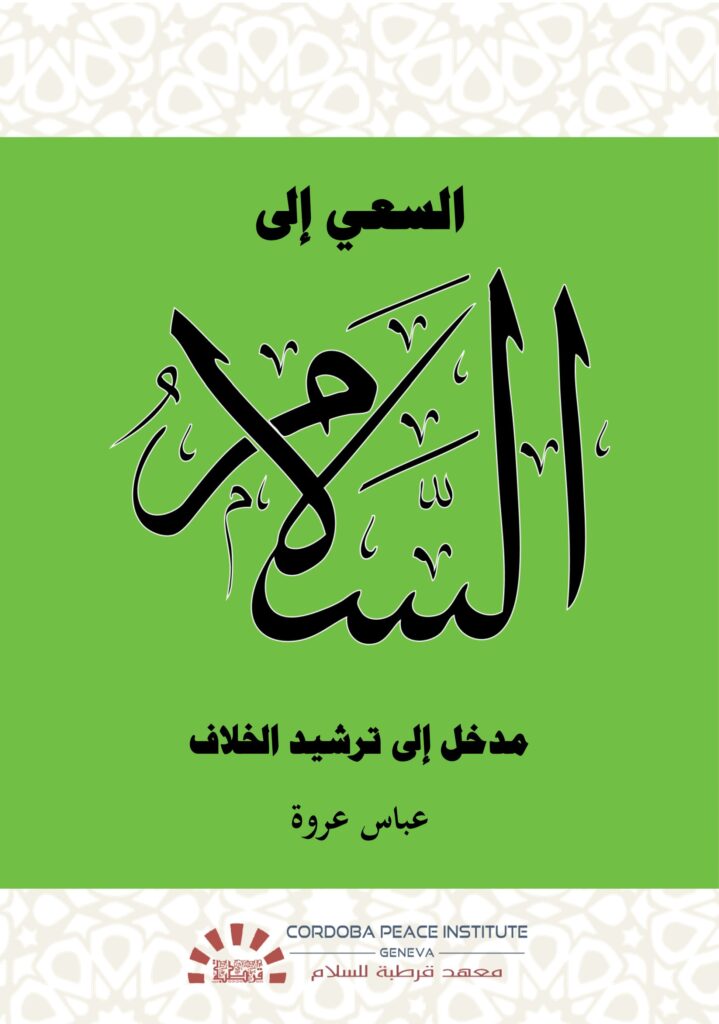Language: Arabic
Author: Abbas Aroua
Publisher: Cordoba Peace Institute – Geneva
360 pages, with illustrations
http://www.cpi-geneva.org/images/pdf/Books/Q4PAr.pdf
The Arab/Muslim world is one of the regions with the highest densities of conflict in the world (intra- and interstate). Yet it is one of the poorest ones in terms of conflict transformation resources, both theoretical and practical.
The processes of political change in the region have shown that the transition from dictatorship to the rule of law is very sensitive with huge challenges. The State is fragile, threatened by numerous conflicts that erupt after a long state of latency under authoritarianism, and which are manifested in the form of political, ideological, religious, ethnic, linguistic, and tribal tensions and polarizations.
The management of the tensions that are shaking this region and are preventing any human development requires the training of specialists in conflict analysis and transformation. An expertise is required in the techniques developed in the West on how to deal with conflict and the ability to adapt them to Arab and Muslim societies, taking into account their historical context and cultural specificities.
The aim of this contribution is to provide the peacebuilding community and postgraduate students interested in this field, who are native Arabic speakers, with some tools and approaches that can be used when addressing conflicts in Arab-Islamic contexts, taking care as much as possible to express the concepts developed in modern conflict and peace theory in a language understandable in those contexts with the use of internal resources from within the Islamic culture, to be more effective in the process of conflict transformation.
The book consists of five sections and sixteen chapters, each chapter representing standalone training materials. The first section is a historical and conceptual introduction that presents the development of conflict and peace studies in the West, highlights the importance of conflict transformation and peacebuilding in Islam, and defines the concepts of conflict, violence and peace. The second section is dedicated to the process of conflict transformation, in which tools to analyze conflict and approaches to transforming it are presented, as well as early warning and rapid response mechanisms to prevent violence, and the processes of negotiation, mediation and reconciliation. The third section deals with approaching political conflicts and discusses issues such as democratic transition, national dialogue, societal cohesion, and strategic non-violence. The fourth section focuses on the prevention of extremism and extremist violence, starting with defining the terms radicalism, extremism and terrorism, distinguishing between faith-based entities, and discussing the process of extremization and the ways to prevent it. Finally, the fifth section deals with conflicts with religious dimensions and discusses the relationship between religion, conflict and peacebuilding, the causes of Islamic-Western tensions and the search for appropriate ways to deal with them. The book concludes with a bibliography of more than 200 references in the field of peacebuilding.
_______________________________________________
 Abbas Aroua is a medical physicist and adjunct professor at the Faculty of Medicine of the Lausanne University, Switzerland. He is director of the Cordoba Peace Institute Geneva and Convener for the Arab world of the TRANSCEND Network for Peace Development Environment.
Abbas Aroua is a medical physicist and adjunct professor at the Faculty of Medicine of the Lausanne University, Switzerland. He is director of the Cordoba Peace Institute Geneva and Convener for the Arab world of the TRANSCEND Network for Peace Development Environment.